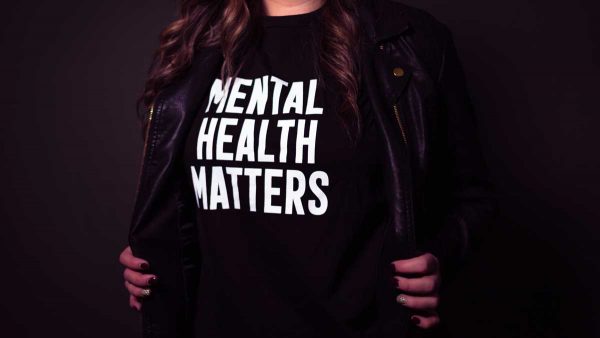At Girl Scouts Western Oklahoma, we know the importance of mental health — especially for our girls. From 2011 to 2017, major depression among teen girls increased from 12% to 20%, according to theconversation.com. The rate of 10 to 14-year old girls admitted to emergency rooms after deliberate self-harm is on the rise as well, according to jamanetwork.com.
The holiday season can bring extra stress, putting a strain on mental health, bringing out depressive episodes and emotions related to the season’s special dates or even just the weather outside. It is incredibly important for adults to be aware of the state of mental health in teens and to know how to help as issues arise not just at the holidays but all year round.
Girl Scouts Mental Health Survey
In 2019, a group of high school Girl Scouts who help advise Girl Scouts of the USA, called the G-Team, began working together with the Girl Scout Research Institute (GSRI) to learn more about mental health issues Girl Scouts face.
G-Team and GSRI studied both the scale of the issues within Girl Scouts, as well as how girls experience and understand mental health. The group surveyed 334 Girl Scouts from 45 states and led virtual focus groups with high school-age Girl Scouts, among other methodologies.
Through process-guided research, G-Team and GSRI learned a great deal of information about girls and their relationship with mental health, from what stressors they are coping with and how they view social media to how supported they feel by the people around them.
The Stressors Girls Face
One Girl Scout said, “I get stressed about the SATs, college applications, my struggles with learning, having special needs, health issues, thinking about the future, and the expectations I have for myself—like what kind of woman am I supposed to be?”
On top of girls facing the normal high school stressors, this generation is facing the stress of high school and teenage life mid-pandemic. Of the girls surveyed:
- 62% worried their schools’ reopening plans might not be safe
- 47% felt nervous about remote school
- 45% don’t think they’ll have enough social interaction with other students (indicating a common concern related to friendships and loneliness)
- 84% of girls are stressed about the future and how the pandemic will affect their prospects for attending college, finding internships or landing a job
- 66% are nervous about the college application process changing because of the pandemic
Support is Important
Through these findings, we learn how important it is to support girls and their personal mental health.
“If we normalize talking about mental health, it can encourage girls to open up and find help,” one Girl Scout surveyed said. “Help girls to realize that they are not alone.”
While many girls do feel their mental health is supported by their friends and their families, there are those who do not. The majority of girls do not feel supported at school or in their communities.
- 70% of girls feel their mental health is supported by their friends
- 70% of girls feel their mental health is supported at home
- 35% of girls feel their mental health is supported at school
- 30% of girls feel their mental health is supported in their communities
“People don’t want to go to counselors in school, because it’s very stigmatized,
and so you feel like you have no one to go to,” a Girl Scout said.
According to the survey, only 44% of girls think their school provides adequate resources for students to support mental health.
When asked who they believe has a positive view of mental health disorders, girls surveyed said:
- 67% believe Girl Scouts have a positive view of mental health disorders
- 63% believe their family has a positive view of mental health disorders
- 56% believe their school has a positive view of mental health disorders
- 45% believe their community has a positive view of mental health disorders
How Can We Help?
Supporting girls’ mental health is an important cause. Many girls view Girl Scouts as a safe environment that will offer resources and a positive community.
“Honestly, my troop leader saved my life and talked me out of suicide when I was in middle school,” one Girl Scout surveyed said. “Girl Scouts gives me purpose right now, and that is incredibly invaluable to me.”
While we are proud of this positive view, there is always room for improvement. Girls’ safety, including their mental health, is always our top priority, and we will strive to be a community that provides a safe space and fosters positive mental health.
In the survey, girls identified a few ways Girl Scouts (and others) can help support their mental health even further, including:
- Help breaking down mental health stigma
- Encouragement of open conversations about mental health
- New programming
- Mental health education and training for girls and volunteers
- Peer mentorship and social support (e.g., knowing how to support themselves and others)
If you are a troop leader or a parent of a Girl Scout, consider providing some of these opportunities for the girls in your life to talk about and work through mental health issues.
Be willing and open to talk about mental health to break down the stigma, and start the conversations yourself.
Troops can provide resources for counseling and provide education on mental health in troop meetings.
Learn More
If you’re looking for resources to share or direction on how to provide mental health education or training for your troop, please contact us at info@gswestok.org, and we can put you in touch with someone who can help.
To read the full research from G-Team and GSRI and to view sources, download this PDF from Girl Scouts of the USA.







